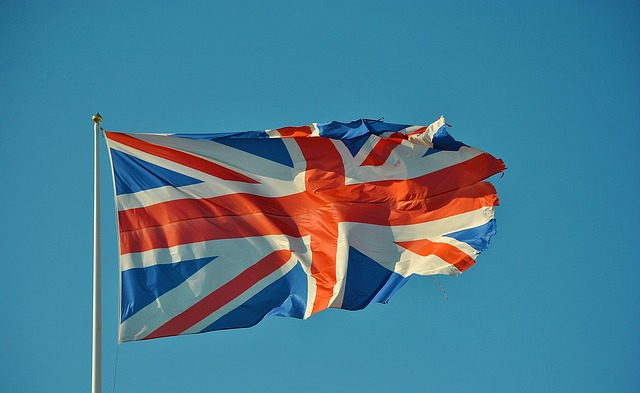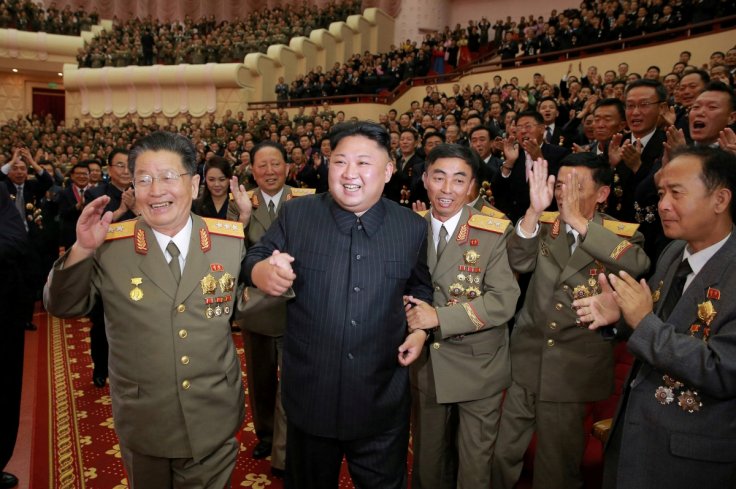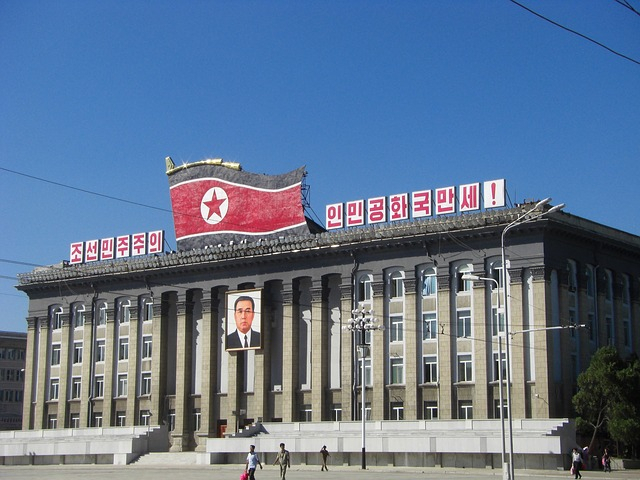North Korea has warned the U.K. that it will "pay the price" for imposing sanctions against it. The U.K. government has announced that it would be issuing penalties against two organizations alleged to have been involved in forced labor, torture, and murder in North Korean prison camps.
This move by the U.K. government is part of the first sanctions under the country's new global human rights regime. The British authorities also announced sanctions on Russia, Saudi Arabia, and Myanmar.
Sanctions Against 49 Organizations
Britain's Secretary of State for Foreign Affairs Dominic Raab had announced the sanctions on July 6 against 49 organizations and individuals, accused of human rights abuse, and said it will target those people responsible for the "very worst human rights abuses around the world".

The sanctions against the two organizations in North Korea are the Ministry of State Security Bureau 7 and the Ministry of People's Security Correctional Bureau. Later, a spokesperson from North Korean Foreign Ministry in a statement published by state-run media organization KCNA said, "Britain's latest move is a flagrant political plot to jump on the bandwagon of the United States' inimical policy."
The statement also stated: "We strongly condemn and reject the UK's daring to impose sanctions on the institutions responsible for our country's security as violent interference in domestic affairs."
However, this sanctions will enable the U.K. government to impose travel bans and take the form of asset freezing. Raab said the first sanctions for human rights abuses will also cover those involved in the death of the Russian lawyer Sergei Magnitsky in 2009, and Saudi Arabian journalist, Jamal Khashoggi, the systemic killings of Myanmar's Rohingya population, and violating human rights in North Korea.
North Korea and the U.S. have failed to find a compromise over the nuclear weapons program in the country ruled by Kim Jong Un, who continues to exercise almost total political control or international sanctions imposed on Pyongyang. Just a few days ago Kim Jong Un's sister Kim Yo Jong stated that the country refused to take part in another summit.
North Korea Human Rights Violation
The government under Kim Jong Un, who is the chairman of the States Affairs Commission and head of the ruling Workers' Party of North Korea, restricts all civil and political liberties, including freedom of expression, association, assembly, and religion. The Kim Jong Un regime also prohibits all organized political opposition, independent media, civil society, and trade unions.

As per the Human Rights Watch, the North Korea government routinely uses arbitrary arrest and punishment of crimes, torture in custody, and executions to maintain fear and control over the population.
North Korean security agencies and the government "Systematically extract forced, unpaid labor from its citizens— including women, children, detainees, and prisoners—to build infrastructure, implement projects, and carry out activities and events extolling the ruling Kim family and the WPK."
North Korea has ratified five human rights treaties which include,
- The Convention on the Rights of the Child (CRC)
- The Convention on the Elimination of All Forms of Discrimination against Women (CEDAW)
- The Convention of the Rights of Persons with Disabilities (CRPD)
- The International Covenant on Civil and Political Rights (ICCPR)
- The International Covenant on Economic, Social and Cultural Rights (ICESCR)
However, in some cases such as the ICCPR and ICESCR, North Korea's state report is more than a decade overdue.

As per a 2014 United Nations' Commission of Inquiry (COI) report on human rights in North Korea, it was found that the North Korea government committed crimes against humanity, including extermination, enslavement, imprisonment, torture, murder, rape, and other forms of sexual violence, and forced abortion.
Earlier, former North Korean students told the Human Rights Watch that their schools forced them to work for free on farms twice a year. It was also found that the government also pressurizes many citizens to join paramilitary forced labor brigades. Prisoners in political prisons, ordinary prison camps, and short-term detention facilities also face back-breaking forced labor in dangerous conditions, sometimes in winter weather, without proper clothing, revealed a report.









